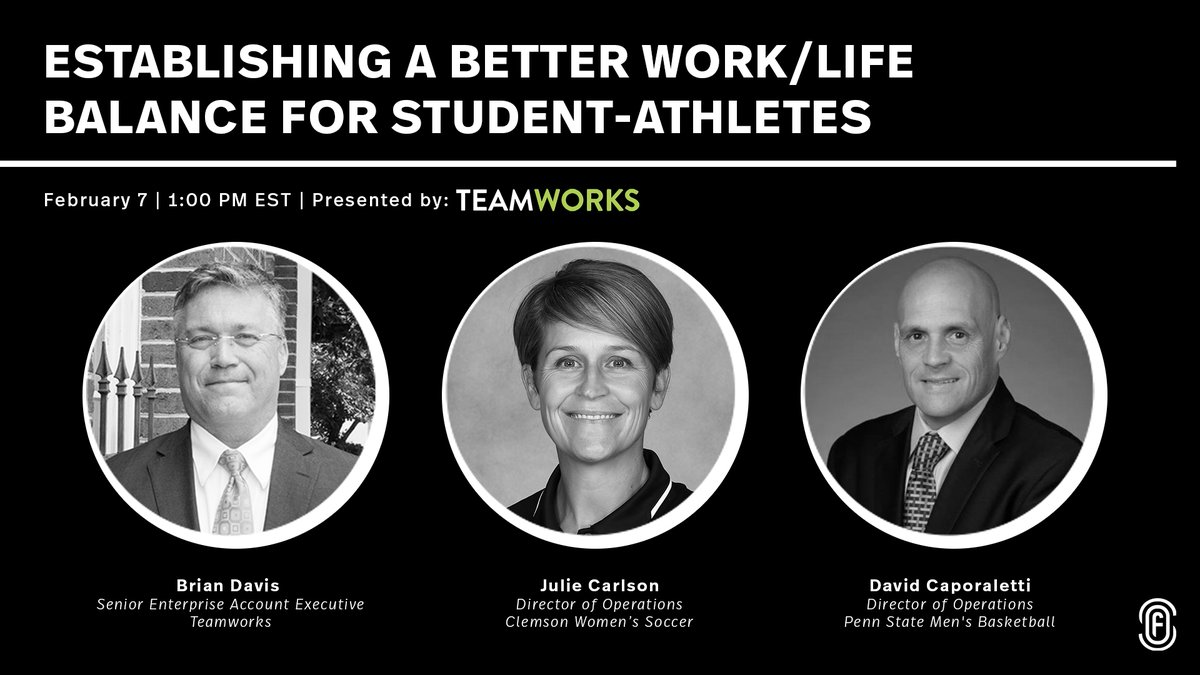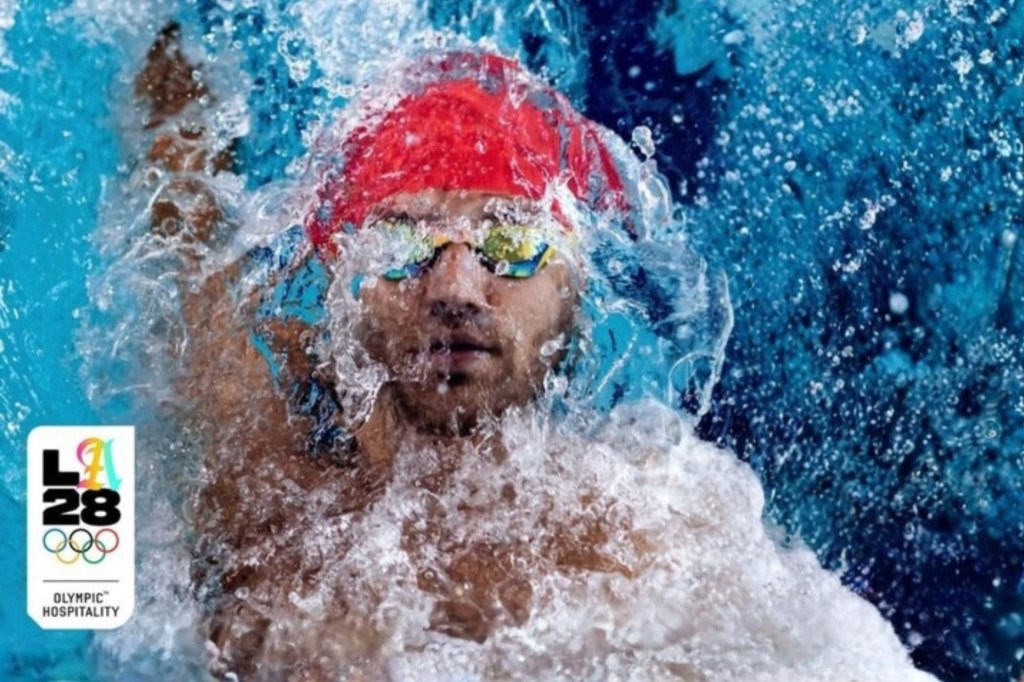Student-athletes have a lot on their plate. Between practice, travel, homework, classes, training, and trying to squeeze in a social life, it can get overwhelming quickly.
A staggering 44% of today’s workforce has reported feelings of burnout, according to a recent Gallup poll. For young athletes, the risk of feeling this is even higher when you consider all of the above things going on in their lives.
Coaches and athletic staffers face similar challenges, both with their day-to-day responsibilities as well as going above and beyond to assist the student-athletes they mentor. To that end, Teamworks wants to help student-athletes and athletics administrators achieve a better work/life balance so that they can be at their best on and off the field.
In this webinar, powered by Teamworks, you will hear from Julie Carlson, Director of Operations for Clemson Women’s Soccer and David Caporaletti, Director of Operations for Penn State Men’s Basketball along with Teamworks’ own Brian Davis to see how colleges can leverage technology to keep student-athletes focused, healthy, and balanced.
Edited highlights appear below:
On the importance of coaches and administrators communicating effectively to best serve student-athletes (9:20)
Davis: “When I was in the academic space, I really wanted to do a great job of delivering unique individual service to the student-athlete, because they’re all their own unique individual….folks on the sports medicine side were doing the same thing. We found ourselves competing for the time and energy of the student-athletes. You can’t do that in a silo. When we first started using Teamworks, we could have a calendar where I could schedule an advising appointment for a student and [the trainers and coaches] would know that that window of time wouldn’t be a good time to call the student-athlete in for treatment. So allowing the connectivity of those three different support groups really got rid of a lot of the mess and the noise of pulling those athletes in different directions all at the same time.”
On finding balance amidst the 24/7 nature of sports (13:40)
Caporaletti: “When you get the time to walk away, you’ve got to take it. It can be hard because of the competitive spirit that gets in you…You’ve really just got to get away when you can so that you can regroup and come back with more energy.”
On helping student-athletes avoid feeling burnt out (27:30)
Carlson: “Sometimes you just have to take them out of their normal environment. At Clemson, we’re really big on community service with organizations like Habitat for Humanity…we encourage student-athletes to be involved in things like that outside of athletics so that they can feel the normalcy of being a regular college student.”
Combating information overload with student-athletes (48:20)
Davis: “You don’t need to send a reminder to every athlete 30 minutes before practice. They know when they have practice. If you over communicate on small mundane things like that, you condition your student-athletes to not pay attention. Regardless of how you’re conveying information to your student-athletes, be responsible and do it in a way where you’re not just burying them with information and they have to be able to glean the really important things from the less important things.”
To learn more about how Teamworks helps empower the sports world’s best, visit Teamworks.com today.







![[Subscription Customers Only] Jun 15, 2025; Seattle, Washington, USA; Botafogo owner John Textor inside the stadium before the match during a group stage match of the 2025 FIFA Club World Cup at Lumen Field.](https://frontofficesports.com/wp-content/uploads/2026/02/USATSI_26465842_168416386_lowres-scaled.jpg?quality=100&w=1024)
![[Subscription Customers Only] Jul 13, 2025; East Rutherford, New Jersey, USA; Chelsea FC midfielder Cole Palmer (10) celebrates winning the final of the 2025 FIFA Club World Cup at MetLife Stadium](https://frontofficesports.com/wp-content/uploads/2026/02/USATSI_26636703-scaled-e1770932227605.jpg?quality=100&w=1024)






